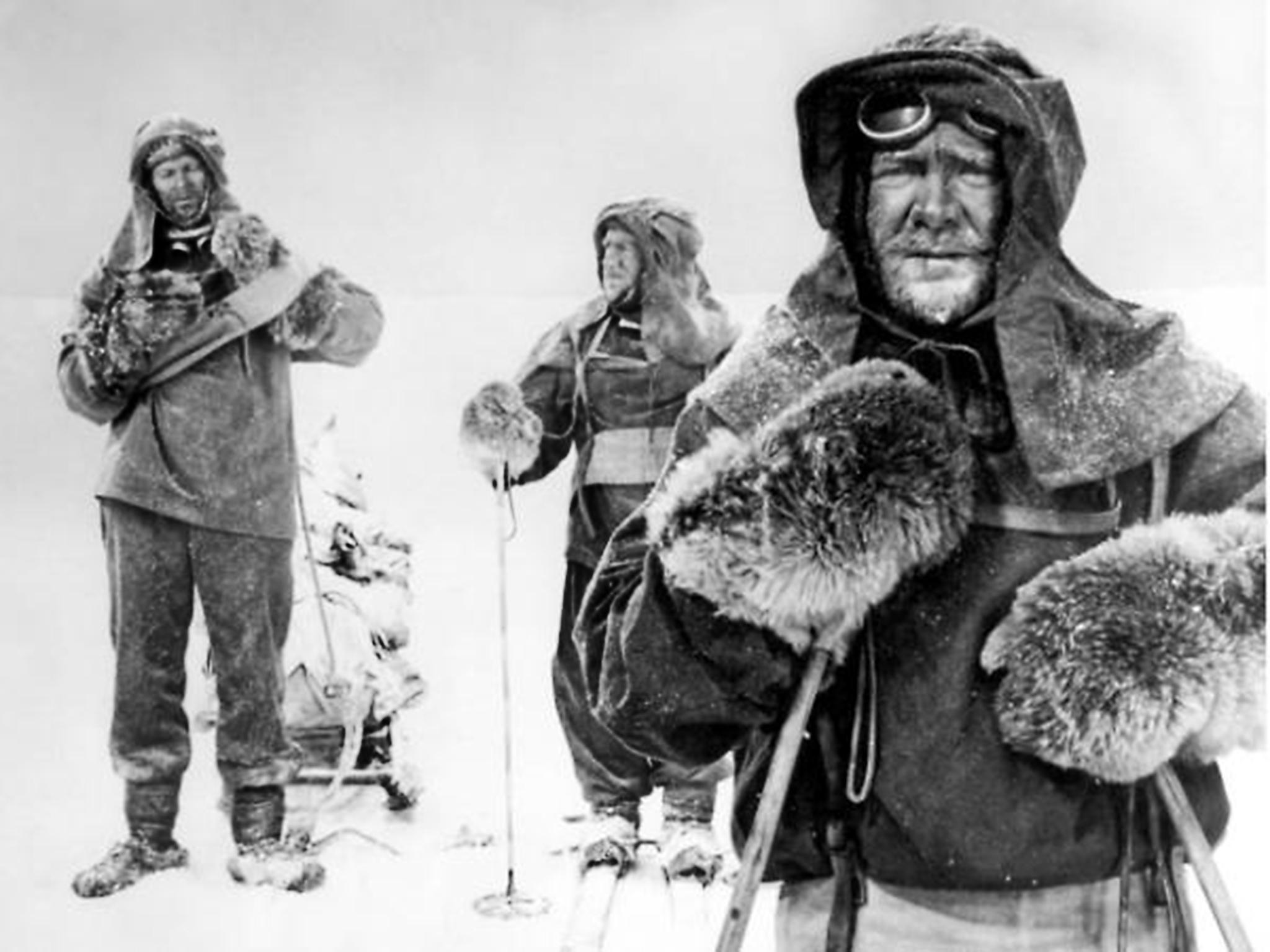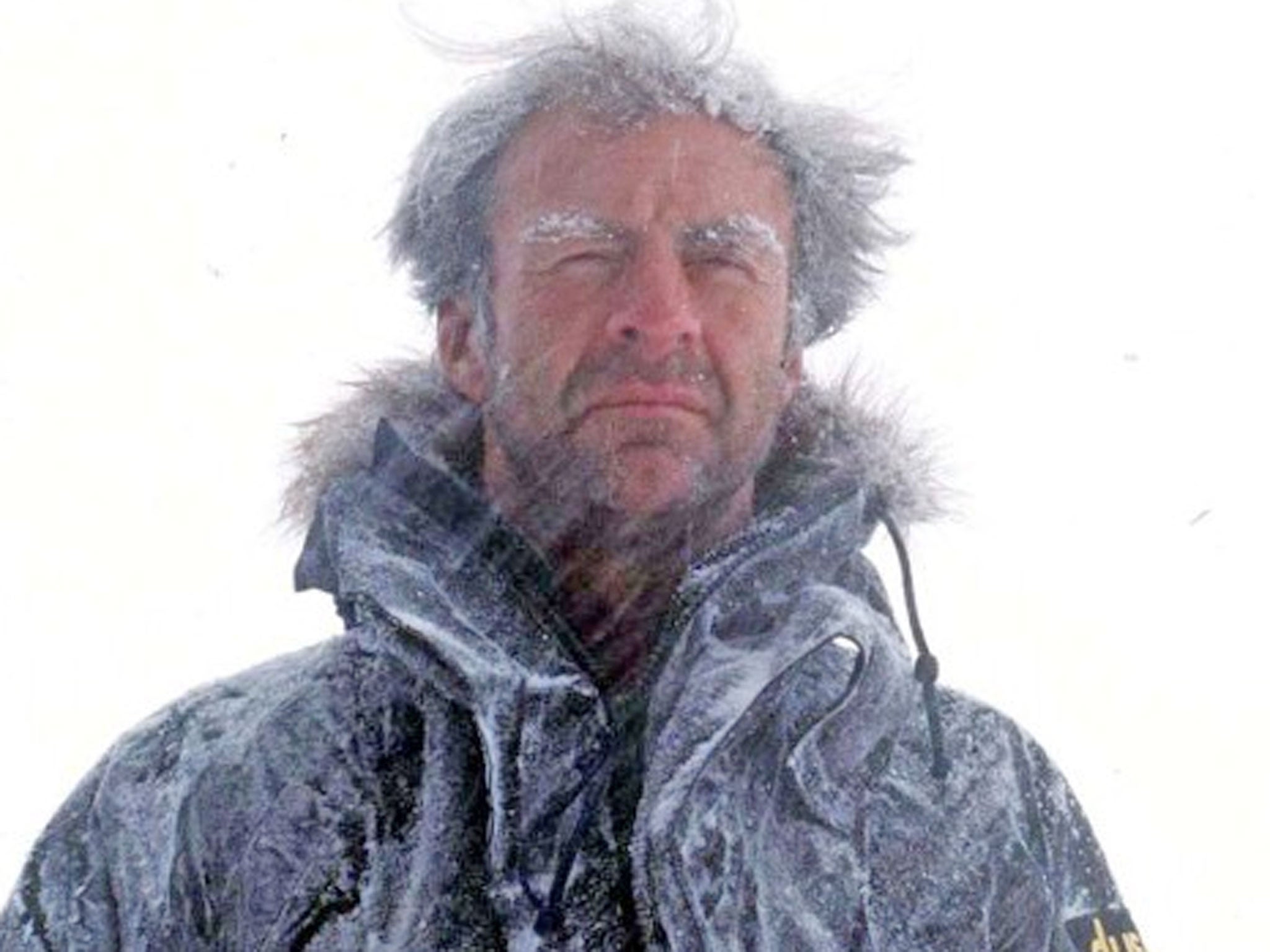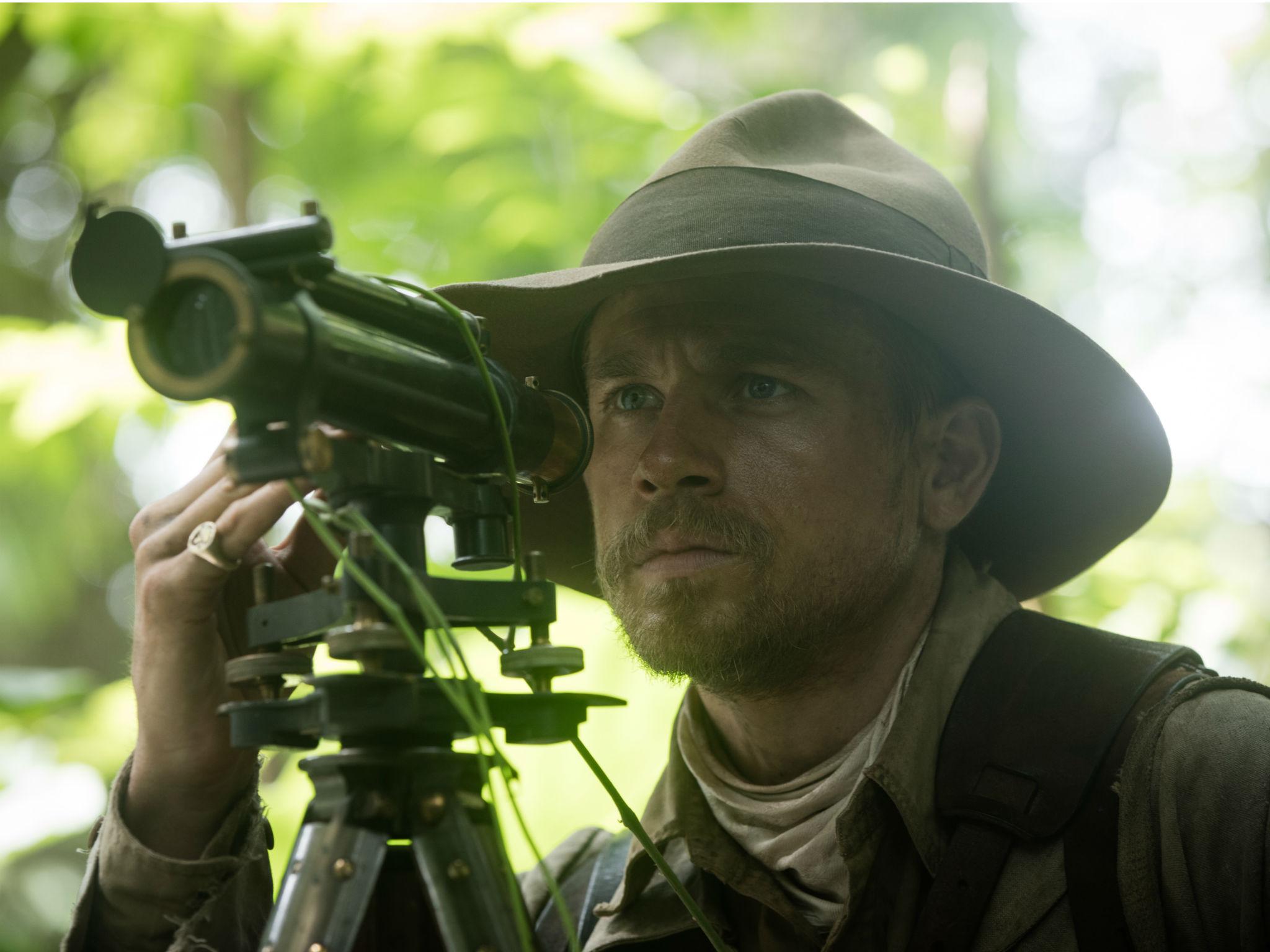Explorer films: Explorers in films who don’t come back always have far more of an emotional kick
Sir Ranulph Fiennes introduces a screening of 'Scott of the Antarctic' starring John Mills at the Royal Geographic Society while James Gray’s new feature, The Lost City Of Z, dramatises the life of Percy Fawcett. But what makes these stories so fascinating is that these explorers never returned

The British explorer extraordinaire Sir Ranulph Fiennes will be at the Royal Geographical Society (RGS) on Monday to introduce a screening of Scott of the Antarctic starring John Mills. Fiennes isn’t a movie expert but he knows everything there is to know about Captain Robert Falcon Scott, whom he describes as “by far the greatest polar traveller of all time.” He remembers hearing from Mrs Gorbachev in the 1980s that a new book had been published on Scott by Roland Huntford that described him as a “bad man” and suggested that Scott’s expedition was incompetently planned. Fiennes was “astounded” by the lies and inaccuracies in the Huntford book. He spent a year researching his own study of Scott and concluded that the expedition was not poorly planned at all. Scott was simply very “unlucky with the weather.”
The Kensington venue is a fitting place at which to screen Scott Of The Antarctic. After all, this is where many celebrated explorers came for funding and support, Scott among them. The RGS also features prominently in James Gray’s remarkable new feature, The Lost City Of Z, which dramatises the life of Percy Fawcett, another British explorer in the Scott and Fiennes mould. In the film, based on David Grann’s book, Fawcett (Charlie Hunnam) is both lionised and ridiculed by members of the RGS. He receives one of its highest medals for his work charting and exploring unknown territory in South America – but his fervent belief in a lost civilisation somewhere in the Amazonian jungle is regarded with extreme scepticism by many RGS members.
Filmmakers relish expeditions which don’t turn out quite as their leaders had hoped. What makes Fawcett’s story so fascinating – and such fertile subject for a film – is that he vanished. Like Scott, he never returned to Britain from his final expedition. Many RGS members of his era gave their lives in their bid to discover and map new lands. However, as Grann writes, “among the Society’s long list of those who were sacrificed, Fawcett filled a distinct category: neither alive nor dead – or, as one writer dubbed him, the living dead.”

It goes without saying that filmmakers share some of the same mix of restlessness and hubris as the explorers whose stories they tell. Their movies are the equivalent of expeditions. When they venture far afield on location, disaster is never far away.
“Jungles and deserts are at the extreme ends of the landscapes this planet has to offer, and both have enormous visual force. They also both hit back at idiots like me who challenge them by wanting to make films there,” Werner Herzog commented in recent book A Guide For The Perplexed. Herzog was in the Amazonian jungle for his 1972 film Aguirre, The Wrath of God, about a Spanish conquistador in search of El Dorado. He returned a decade later for Fitzcarraldo (1982), which wasn’t about an explorer but told the story of a mad opera-loving businessman who dragged a steamship over a mountain. “It was very, very difficult. I still think it was the toughest film in film history, tougher than Apocalypse Now. We had starvation – and no money,” his production manager George Sluizer later recalled of his experiences on the troubled production. Both films had a touch of madness about them – and both were awe-inspiring and spectacular in a way that puts the most expensive studio-made epic to shame.
Think of the movies and the first images likely to spring to mind are of Klaus Kinski (who played the leads in both) with that look of demented, demonic determination in his eyes.
British explorers like Mills’ Scott or Hunnam’s Fawcett share that determination. They’re also well-bred Englishmen with very good manners. That’s one of the fascinations of the films about them. Almost as important as reaching their destinations is behaving with decorum and selflessness. They’ll always divide the rations in an equitable way. They may be in desperate straits, close to starvation, but you won't find them swearing. There’s a tremendous scene in The Lost City Of Z in which James Murray (Angus MacFadyen), a companion on one of Fawcett’s expeditions, realises that he isn’t strong enough to keep up with the others. We’ve seen him back in London at the RGS and at society events. Deep in the jungle, with sweat pouring down him and his companions furious at his cowardice and venality, he still speaks as if he is exchanging some smart London club.
The Lost City Of Z isn’t just the story of an explorer on a daring journey to the earth’s limits. What makes it such rich and fascinating fare is its questioning of just why men like Fawcett are so desperate to go on such far flung expeditions. They all realise that their journeys may cost them their lives. “At the very least, you will be gone for several years,” Fawcett is blithely told by his sponsors at the RGS when he heads on his first trip to South America.

Why does Fawcett do it? James Gray’s screenplay points to many and often wildly contradictory motives. There’s an element of sexism. He is happily married but simply won’t countenance the idea of his wife Nina (Sienna Miller) accompanying him, although she is as tough and self-reliant as he is. He’s a soldier who doesn’t have any medals and is desperate to prove his courage. He is driven by patriotic pride in the British Empire – but also by shame at the virulent racism of so many of his British contemporaries who treat the native people as “primitives.” After serving in the trenches in the First World War, he wants to get as far away from the slaughter as he can – even if he knows he might be killed by indigenous tribes in Bolivia. He yearns for glory and fame but he also wants to disappear.

Watch Apple TV+ free for 7 days
New subscribers only. £8.99/mo. after free trial. Plan auto-renews until cancelled

Watch Apple TV+ free for 7 days
New subscribers only. £8.99/mo. after free trial. Plan auto-renews until cancelled
One reason why filmmakers are so intrigued by characters like Scott and Fawcett is that their stories aren’t simply about reaching a destination. “Had we lived, I should have had a tale to tell of the hardihood, endurance, and courage of my companions which would have stirred the heart of every Englishman. These rough notes and our dead bodies must tell the tale,” Captain Scott famously wrote in his journal shortly before his death. In fact, had Scott lived – or had Percy Fawcett returned from his final expedition – their mystique would surely have been diminished. The best movies about expeditions are rarely ones in which the travellers achieve their goals and then come back home to boast about it. Films about explorers who don’t come back always have far more of an emotional kick.
The BFI and Studiocanal present: 'Scott of the Antarctic' + Q&A with Sir Ranulph Fiennes at the Royal Geographical Society, London on Monday 19 December at 19:00. (Tickets at bfi.org). 'The Lost City Of Z' will be released next year
Join our commenting forum
Join thought-provoking conversations, follow other Independent readers and see their replies
Comments